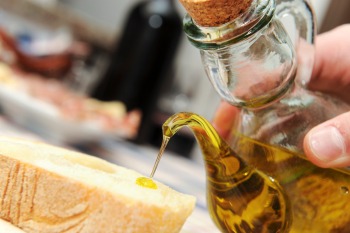 As you probably know by now, Extra Virgin Olive Oil is a natural product. In fact, it’s more like a fruit juice than a typical seed oil. It’s squeezed directly from olives which have been picked and crushed into a paste.
As you probably know by now, Extra Virgin Olive Oil is a natural product. In fact, it’s more like a fruit juice than a typical seed oil. It’s squeezed directly from olives which have been picked and crushed into a paste.
In fact, it’s not unlike how apple cider or other fruit juices are made. If you’ve ever been to an apple orchard, the growing and extraction process is quite similar. Fruit is slow grown throughout the season and harvested at the ideal time of the year. Any farmer would agree, the growing anything is more of an art than a science. And there’s many factors that can affect the the fruit as it develops. On top of that, the cider is going to taste like the apples that it came from.
The same applies to olives. The olive is always subject to taste like the olive it came from. And what makes that olive taste the way that it does? It’s not just the varietal (breed or type) that it is. It will also be affected by many factors during it’s growing process. To name a few:
- Sunshine
- Rainfall levels
- Moisture in the soil
- How old the trees are
- Weather throughout the year (aka, hail storms that may bruise the olives, extreme temperatures)
- How early or late in the harvest season the olives are harvested
- And finally, what varietal (or type) the olive is

If you need a specific taste profile, most suppliers can offer this on a contract basis. It requires reserving specific blends for you and mixing tastes to create just what you’re looking for. Still, it’s a natural art, like a unique painting and it can not be absolutely identical every season.
Topics: Extra Virgin Olive Oil, Quality Control












